Newark mayor, unions raise alarm at what Rutgers merger may mean for University Hospital
Newark Mayor Ras Baraka and other critics of Rutgers University’s recent decision to merge its two medical school campuses are alarmed at what the move could mean for the future of Newark’s University Hospital, a critical lifeline to the area’s thousands of uninsured patients.
The Rutgers board of governors voted in July to merge the Newark and New Brunswick medical school campuses, despite calls for a clear plan and concerns that had been raised by doctors, nurses and Newark officials since 2019, when the proposal was first floated.
Critics of the move have asked whether clinical services, jobs and funding at the financially strapped University Hospital will be diverted to RWJBarnabas Health, a large private hospital system and Rutgers partner in New Brunswick. And they've questioned combining campuses that serve such different populations without first clearly laying out the fiscal and program impacts.
Some who work at University Hospital say Rutgers hasn’t served the hospital well since the university and the hospital were linked by law in 2012.
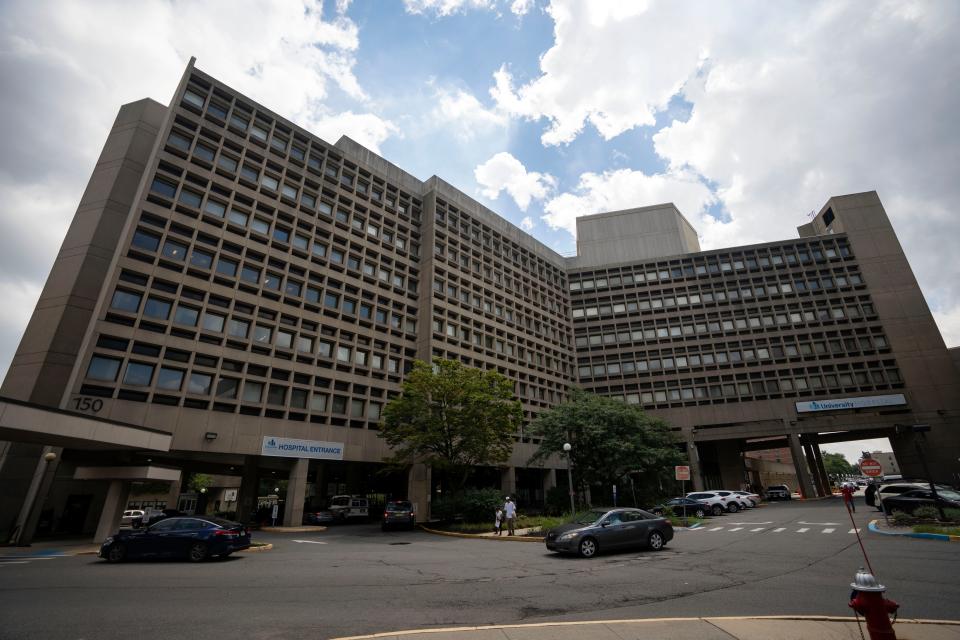
Service lines, physicians and residents were reassigned to health systems at Cooperman, Barnabas and Robert Wood Johnson and taken out of Newark, Catherine Mazzola, a pediatric neurosurgeon, told the Rutgers board when it approved the merger in July.
As a result, “the trust factor is broken with Rutgers,” said Debbie White, a nurse and president of the Healthcare Professionals and Allied Employees union, representing around 1,600 employees at the hospital.
“The hospital has been allowed to fall into a state of disrepair," White said. "Now we have a medical school merger. Rutgers is one of our employers. One thing I have seen is that they have told us one thing and done something else.”
Commitment to Newark 'undiminished'
The merger’s loudest advocate, Brian Strom, chancellor of Rutgers Biomedical and Health Sciences, has said Rutgers is committed to protecting the Newark campus. The merger, he says, is needed to improve Rutgers’ rankings and pool resources to better serve the state.
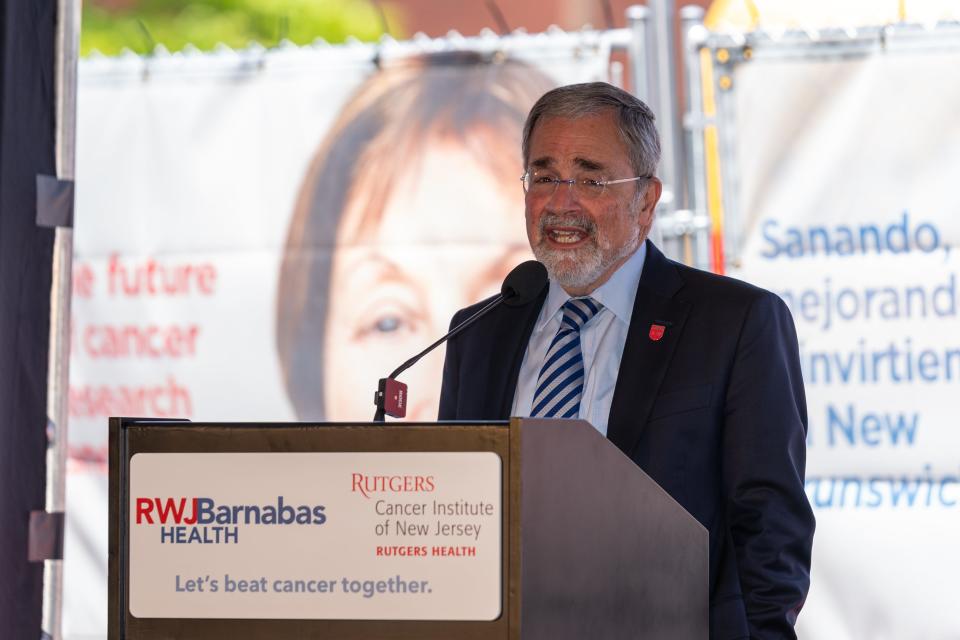
“We have no plans to reduce the faculty, staff, or budget of New Jersey Medical School … our commitment to the city of Newark is undiminished by this entirely organizational and administrative restructuring,” Strom and Rutgers President Jonathan Holloway said in a letter responding to Baraka’s concerns about the merger.
White said she did not believe Rutgers’ assurances about preserving the hospital’s interests and its workforce, given that the merger pits University Hospital against Barnabas, a vast, private, profit-making entity partnered with the university’s flagship campus in New Brunswick.
“I don’t believe that their intention is to treat the two campuses equally,” she said. The main concern is that the merger will eventually result in lost or reassigned jobs, further diluting how the hospital serves Newark, White said.
The HPAE union is asking the Murphy administration and Trenton lawmakers to set up a monitoring body and laws to prohibit diverting jobs or resources from the hospital when the merger is implemented.
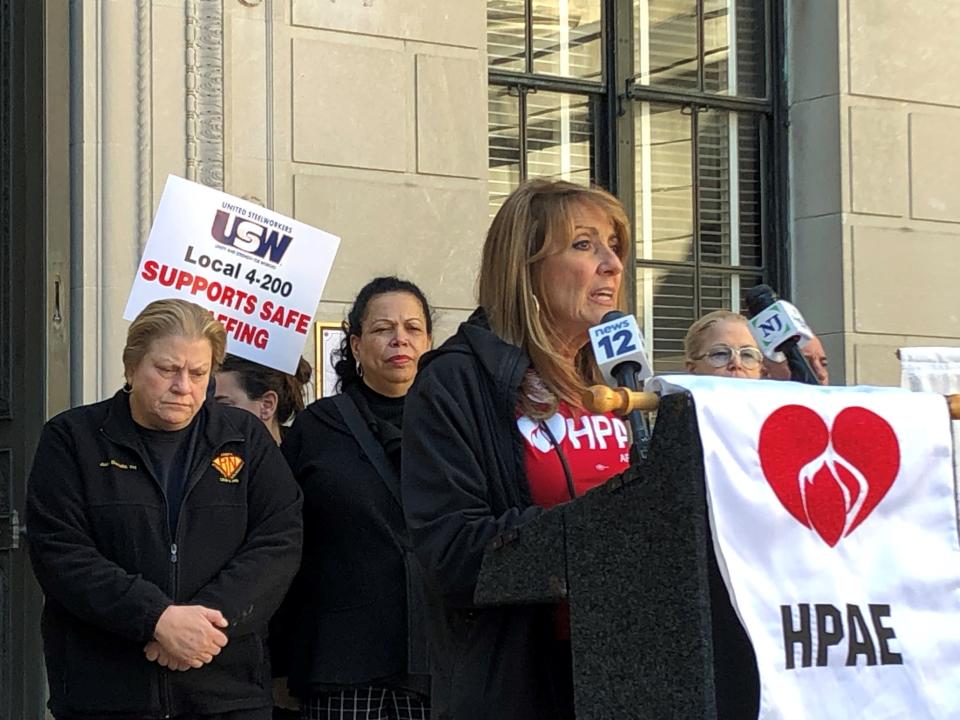
“The bottom line is that there is no entity overseeing the letter of the Newark Accords,” White said, referring to the historic agreements that formalized a contract among the state, business leaders and Newark, in which the medical school said it would promote public health in the city.
A 2012 law, the Restructuring Act, touted renewed commitment from Rutgers and the state to preserve the hospital’s role in Newark. Its language promised enough state funding to maintain University Hospital’s position as an acute care and trauma center. It also created an oversight body to review changes to health services resulting from the law for a five-year period and ensure that the hospital's mission laid out in the Newark Accords was upheld.
University Hospital's new president and CEO, Ed Jimenez, sees little cause for worry. Unlike the unions, he takes Strom and Holloway at their word. “My understanding from the president and chancellor is that the merger of the medical schools will have zero impact on clinical services here,” he told NorthJersey.com.
He said he will be a “steward” for Newark but did not see why the unions want to codify protections for the hospital. “I understand it, but I can’t relate to it, though,” said Jimenez, who had been CEO of University of Florida Health Shands Hospital since 2014 before starting in Newark in January.
New Jersey's only public hospital
University Hospital is New Jersey’s only public hospital and serves more uninsured patients than any other in the state. It is the only state-designated Level I trauma center for North Jersey and helped coordinate the state’s COVID-19 response.
Advocates say the state has never stepped in with enough funding to compensate for the hospital's expenses. The hospital has reported operating losses for years; 70% of its patients use Medicaid or Charity Care, the state’s program to cover some or all emergency care costs for patients who meet the income and asset criteria.
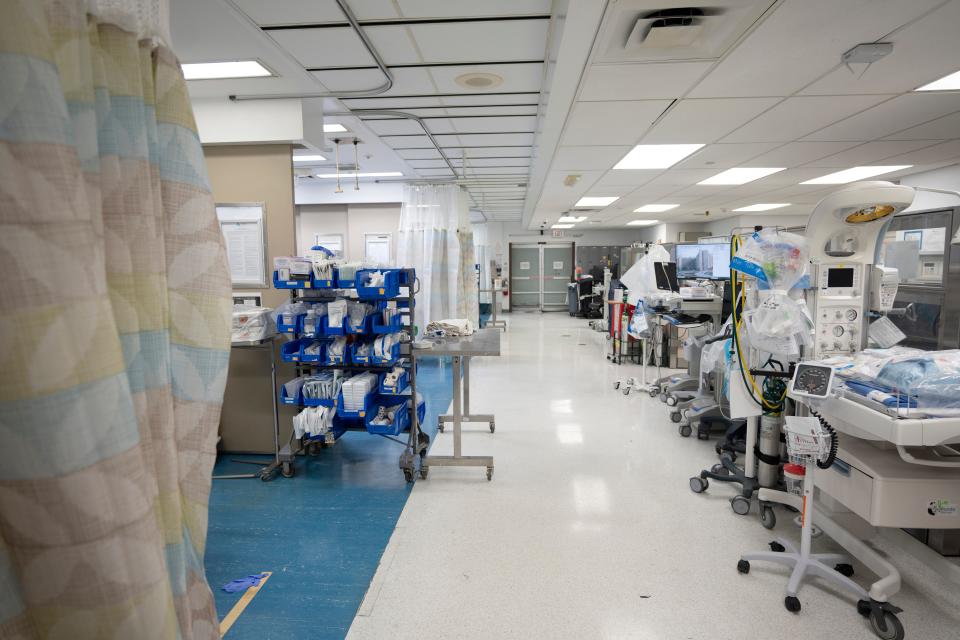
A state monitor took over the hospital in 2018 after the deaths of three infants in neonatal care and a failed patient safety report. After years of seeing the hospital struggle, Baraka; the RBHS AAUP union, representing 350 medical faculty members; and the HPAE union, representing around 1,600 nurses and health workers at the hospital, say they need more than verbal assurances from Rutgers and Trenton.
Senate Majority Leader M. Teresa Ruiz, D-Newark, and Assemblywoman Nancy Munoz, R-Summit (the hospital’s trauma center is named after her late husband, a doctor and former assemblyman), have asked the state to fund the hospital’s renovation. Calling the hospital a “true asset” to Newark, Ruiz noted that though respected as a trauma center, it is not a patient destination.
“You get into a severe, terrible accident or you’re looking for a very specific kind of specialty, you go there because the experience and excellence is extraordinary," Ruiz said at a budget hearing last year. "But if you can schedule surgery, you go somewhere else.”
'No commitment from the state'
The state allocated $45 million in direct institutional support, $60 million in capital support and $13 million to support the Clinical Service Agreement between University Hospital and Rutgers in the fiscal 2024 budget, said Christi Peace, a spokesperson for the Murphy administration. The hospital is listed with the state’s higher education institutions in budget documents, with an annual appropriation of $52 million in state aid for fiscal year 2024, around $25 million less than it requested.
Ruiz did not respond to repeated requests for comment when asked whether there are efforts underway to pass legislation to protect University Hospital.
A push from the state was clearly missing, Baraka, Newark's mayor, said in a letter to Gov. Phil Murphy last month. Baraka has asked Murphy to meet with him to discuss the state's commitment to the hospital.
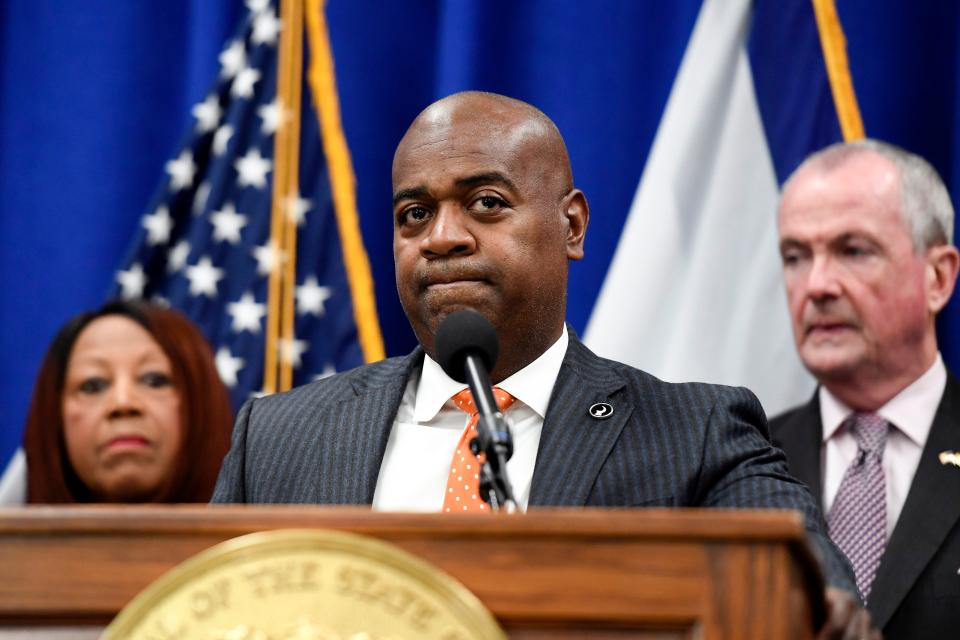
“I don’t think it’s the university’s obligation. The hospital is trying to grow," Baraka said in an interview with NorthJersey.com. "There is no commitment from the state; there’s not even a phased-in plan to provide resources, or to fix our emergency room, to invest in the physical structure of the hospital.”
University Hospital still occupies its 1979 building with 519 beds, though the number of admitted patients it serves increased by more than 2,000 between 2015 and 2022, to 17,500. The number of patients served in the emergency room has more than doubled since the 1980s.
“I think the state is missing an economic development opportunity, to grow jobs and to make it a world-class hospital," Baraka said in the interview. "And I think it’s the wrong move. And it does not give us confidence that people really are thinking about investing in our medical infrastructure here in the city of Newark, which alarms me.”
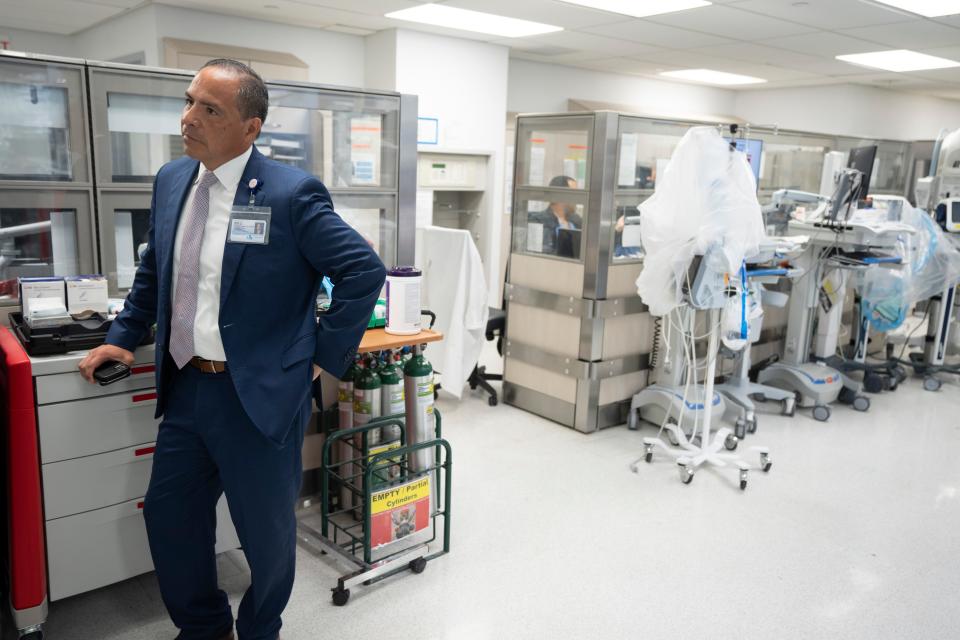
Baraka, like the unions, wants a law protecting the hospital and codifying its role.
But Jimenez, the CEO, disagrees. “I don’t think legislation solves anything,” he said.
Hospital needs 'space, space and more space'
In the hospital's emergency room last week, patients were lined up on stretchers in numbered spots. Because it doesn’t have enough rooms, the ER’s triage spaces are divided by curtains. Jimenez praised the hospital for maximizing its real estate amid the crunch, but one doctor said that lack of space was the biggest limitation. “Even cognitively, it becomes a workload … space, space and more space” is needed, he said. Other staff members nodded vigorously.
That additional space could become reality, as University Hospital begins to implement its master plan to build a modern, redesigned hospital over the next decade.
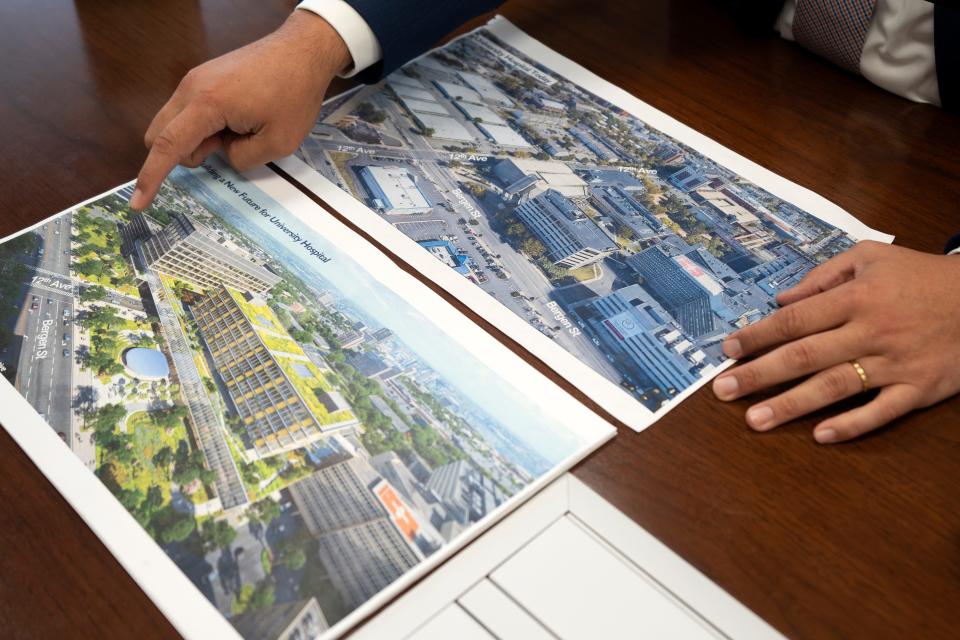
The state footed $225 million of the project's $1.8 billion price tag, Jimenez said. Of that, $200 million came from federal funds, including COVID-relief allocations in fiscal year 2023. But Jimenez agrees that there is no word from the state on how it will fund the remainder.
The Murphy administration will "continue to assess the University Hospital’s needs in order to support its crucial work on behalf of the many people it serves,” said Peace, the spokesperson.
This article originally appeared on NorthJersey.com: Newark University Hospital: Will it be harmed by Rutgers merger?

